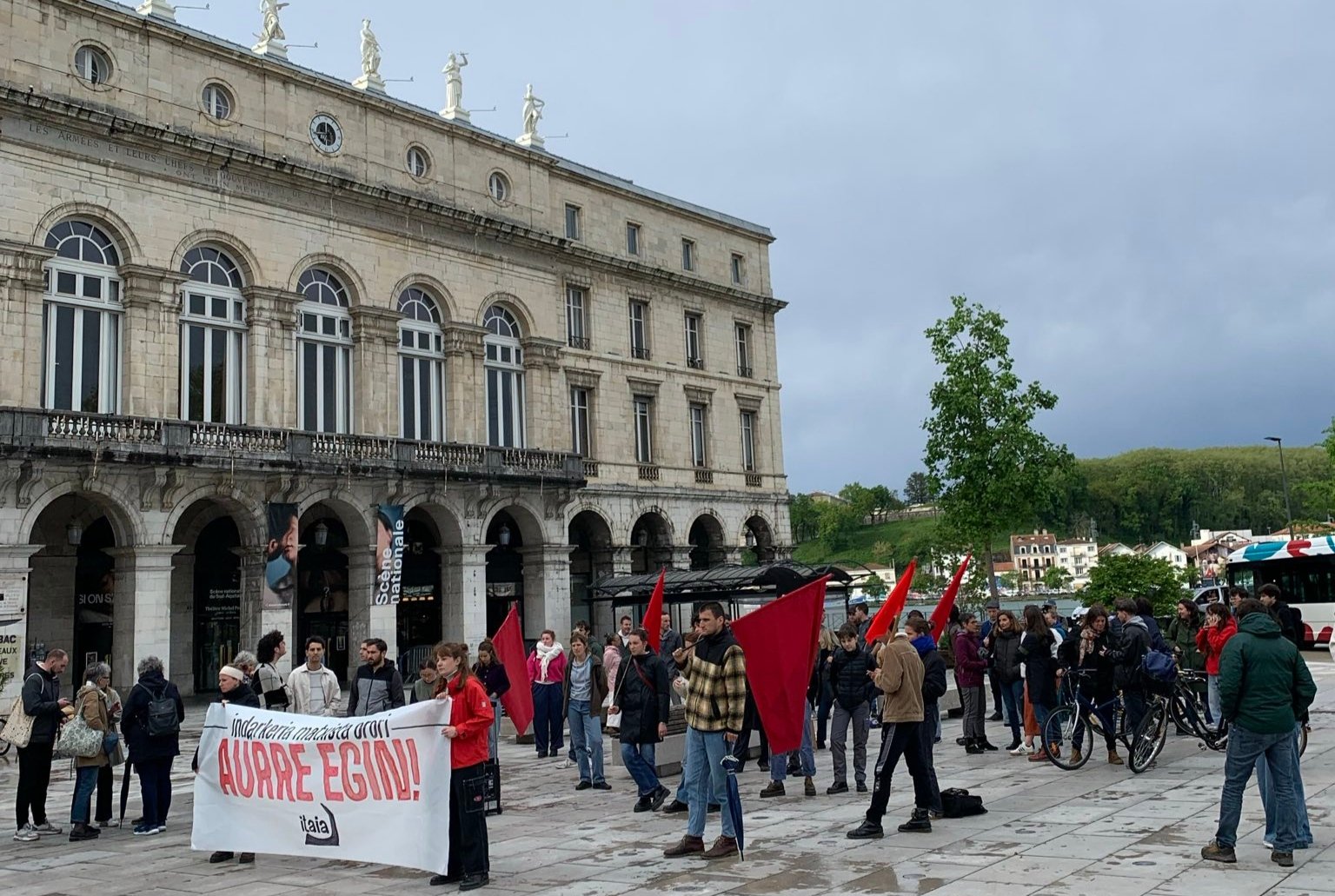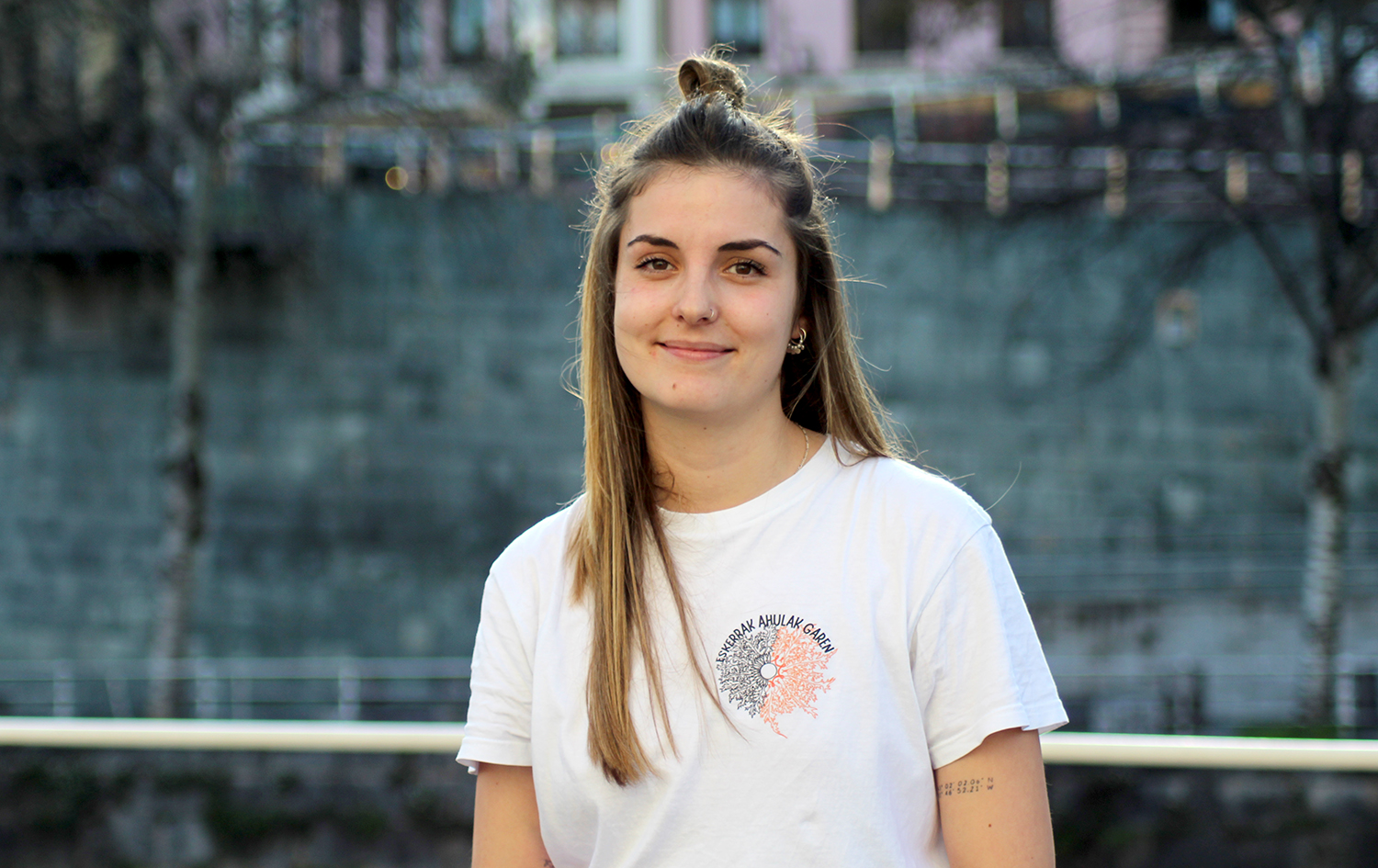Talaia Feminist concludes that in 2024 violence has “increased”
- The 2024 study revolves around four main axes: machist violence; territory; war and armed conflicts; and the extreme right. Talaia Feminist has underlined the importance of socializing analysis and has underlined the importance of “accumulating resistance” in the Basque Country.
On January 20, Talaia Feminista presented the 2024 dossier in the bookstore Books Louise Michel in Bilbao. This document, the result of a feminist analysis, addresses the sociopolitical dynamics of the last year from a feminist perspective; the forms of violence, resistance and possible transformative horizons. The content will be discussed at the Talaia Feminist Meeting, which will be held on 1 February at the Economics and Business School of Sarriko (UPV). In the words of Yolanda Jubeto, a member of the group, “Talaia Feminista continues. It is good news, the woman* independence and/or sovereign that we feel part of this community that we work to dream and achieve the feminist Basque Country.”
The analysis is structured around four main axes: male violence; territory; wars and armed conflicts; and the extreme right. It also deals with issues such as public equality policies and mental health.
Male violence: institutionalization and new challenges
The report notes that the fight against male violence is increasingly “institutionalized”, with “both positive and negative consequences”. According to the authors, this process has made the problem visible and established frameworks of action, but has also generated contradictions. In addition, the feminist movement, which is “plural and intersectional”, faces challenges such as the use of social networks, the growing sense of insecurity and the strengthening of impunity. “We note that systemic violence has been reorganized, resorting to the most explicit and shameless forms, and using new types of implicit and symbolic violence,” stressed Begoña Zabala and Amaia P. Orozko.
Territory: between the ecological crisis and resistance
The agricultural sector underwent significant mobilisations in 2024, reflecting a “deep concern” in rural areas. The dossier alerts about the consolidation of non-consensual megaprojects, defined as “territorial violence”. On the contrary, resistance is also being organized from agroecology, ecofeminism, mobilizations against macro-projects and the proliferation of cooperatives and energy communities. They have stressed the importance of striving for an eco-feminist sovereignty that “integrates” land, life and bodies, claiming the “collective right to food”.
Wars and armed conflicts: global and feminist impacts
They have highlighted the increase in armed conflicts and military spending, as well as the increase in military spending they entail, and the normalization of militaristic discourses. According to the dossier, these contexts intensify forced migration and aggravate male and sexual violence. For this reason, they consider it essential to recover the tradition of antimilitarist mobilization in the Basque Country and feminist activism. In the first place, “to make the responsibilities visible and denounce the connection between wars, patriarchy, capitalism and colonialism; and in the second place, to give flesh to internationalist and antimilitarist feminism”.
Global expansion of the far right
The document warns of the advancement of the extreme right in Europe, “fueled by the general feelings of impairment and fear provoked by the processes of precariousness of life”. In addition, they have stressed that this trend instrumental uses feminism and women, while driving an anti-feminist reaction. “It is urgent to recognize that the extreme right is already in the Basque Country as an ecosystem, but that there is still a sociopolitical architecture that allows to channel the feeling of opposition to the system in other ways,” the authors added.
After the presentation of the study, Kizkitza Gil de San Vicente highlighted two issues of the dossier: public policies on equality and mental health. On 1 February he raised questions that will be addressed in the Talaia Unea on the effectiveness of equality policies and the capacity for transformation. He has also referred to the politicization of the mental health problem and raised the debate on ways to “collectively address” mental suffering.
Talaia Feminist concluded that "the accumulation of resistance" in the Basque Country is one of the keys. According to the driving group, “its socialization is as important as conducting a rigorous feminist analysis, with the aim of boosting the feminist transition in the Basque Country”.
The full dossier is already available on your website and the deadline for registering for the meeting is open until the day of the event.
Errepikatu nirekin: Sara Millerey. Ez dezagun ahaztu bere izena. Transfeminizidioaren biktima da Millerey: gorrototzaile transmisogino batek torturatu zuen, besoak moztu zizkion eta bizirik bota zuen ibaiertz batera. Bi orduko agoniaren ondoren hil zen.
Errazagoa da J.K... [+]
Many Basque feminists have been disappointed to learn that writer Chimamanda Ngozi Adichie has externalized pregnancy, meaning that a surrogate has fertilized her baby for money.Adichie is the author of the essay We should all be feminists, among others. They have ignored the... [+]
Indartsua, irribarretsua eta oso langilea. Helburu pila bat ditu esku artean, eta ideia bat okurritzen zaionean buru-belarri aritzen da horretan. Horiek dira Ainhoa Jungitu (Urduña, Bizkaia, 1998) deskribatzen duten zenbait ezaugarri. 2023an esklerosi anizkoitza... [+]
Gozamen aparta bezain deskribatzeko zaila dakar, norbaiten hitzak irakurri edo entzun ostean, zera pentsatzeak: “Horixe zen neu aurreko hartan azaltzen saiatu nintzena!”. Idazlea eta itzultzailea da María Reimóndez, eta galegoz aritzen da, hizkuntza... [+]
Orain arte desgaituak ez diren pertsonekin lehiatu da Uharteko Ipar Eski Taldeko Eneko Leyun eskiatzailea (Iruñea, 1998). 2024-2025 denboraldian, lehenengo aldiz parte hartu du Adimen Urritasuna duten Pertsonentzako Iraupeneko Eskiko Espainiako Txapelketan. Urrezko... [+]
Joan den urte hondarrean atera da L'affaire Ange Soleil, le dépeceur d'Aubervilliers (Ange Soleil afera, Aubervilliers-ko puskatzailea) eleberria, Christelle Lozère-k idatzia. Lozère da artearen historiako irakasle bakarra Antilletako... [+]
Endometriosiaren Nazioarteko Eguna izan zen, martxoak 14a. AINTZANE CUADRA MARIGORTAri (Amurrio, 1995) gaixotasun hori diagnostikatu zioten urtarrilean, lehen sintomak duela lau urte nabaritzen hasi zen arren. Gaitz horri ikusgarritasuna ematearen beharraz mintzatu da.





















